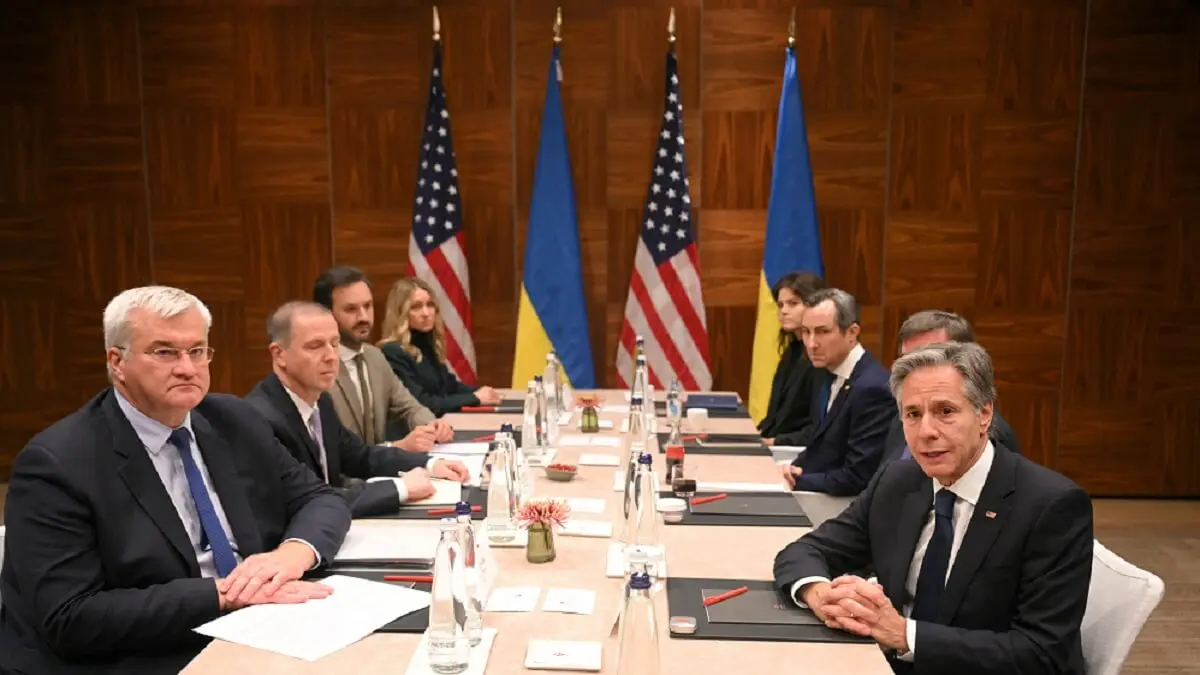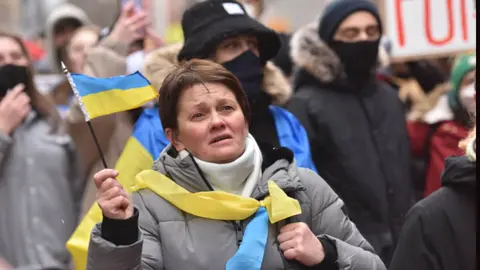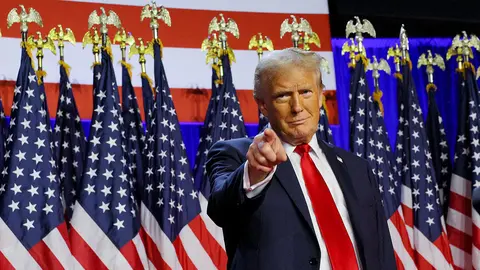Blinken pledges ‘firm response’ to North Korean presence in Ukraine conflict

US Secretary of State Antony Blinken promised a ‘firm response’ to the presence of North Korean troops in the Russia-Ukraine conflict in Brussels on Wednesday.
Coinciding with a Russian ballistic attack on Kiev, Blinken began a series of meetings in Brussels on Wednesday to defend aid to Ukraine.
The day began with a meeting with NATO Secretary General Mark Rute.
‘We had a meeting about support for Ukraine (...) and this new element, North Korean troops injected into the battle, and almost literally in combat, which demands and will have a firm response,’ he said.
The United States claims that North Korean troops are deployed in combat operations in Russia's Kursk region, where the Ukrainian army launched an offensive in August and holds part of the territory.
On Wednesday, South Korea's intelligence service claimed that North Korean military personnel are already ‘engaged in combat’ in Kursk, where they were deployed a fortnight ago.
While Blinken would not elaborate on how such a response to the North Korean presence might take place, he said the deployment of troops was an ‘incredibly dangerous’ step.
At NATO headquarters, Blinken attended a meeting of the North Atlantic Council (the highest decision-making body in the military alliance) before a quick meeting with Ukrainian Foreign Minister Andrii Sybiga.
The senior US official said the United States ‘is counting on our European allies for strong support for Ukraine’.
Blinken is also scheduled to meet with outgoing EU diplomacy chief Josep Borrell and his successor-designate, Kaja Kallas.
In her confirmation hearing before the European Parliament, Kallas, a former prime minister of Estonia, had stressed on Tuesday that the EU should maintain support for Ukraine ‘as long as necessary’.
Blinken's trip to Brussels comes as Kiev and its European partners seriously fear that US President-elect Donald Trump will turn off the aid tap.
Trump has already had telephone contact with Ukrainian President Volodimir Zelenski. According to the Washington Post, he also communicated with Russian President Vladimir Putin, although the Russian government has denied this.
During the election campaign, Trump promised to end the Russia-Ukraine war within a day, even before he took office. He did not say exactly how he would do this, though.
Aid questioned
Trump has also suggested that his administration could limit multi-billion-dollar aid to Ukraine, questioning those contributions as the war is, according to him, at a ‘stalemate’.
On Ukraine's eastern front, Russia conquered hundreds of square kilometres in October, threatening strategically important cities such as Pokrovsk.
Not only that: the Russian army has intensified drone attacks on the Ukrainian capital since the beginning of October, and on Wednesday went even further by launching drones along with missiles.
‘The Russian armed forces launched a combined missile and drone attack on Kiev for the first time in 73 days,’ the capital's military administration said.
According to the same source, the attack lasted more than two hours, but did not cause any deaths thanks to anti-aircraft defences.
The current US president, Joe Biden, is seeking to speed up the delivery of military aid to Ukraine and intends to implement mechanisms for Europeans to take over.
Currently, some 9.2 billion dollars remain from the budget approved in the spring.
Of that total 7.1 billion dollars come from the US arms stockpile and 2.1 billion dollars are earmarked to fund arms procurement contracts, according to the Pentagon.
Government sources in Washington said that the administration intends to use all of this money.
German Foreign Minister Annalena Baerbock has warned of the risk of Putin taking advantage of the political transition in the US to benefit himself.










